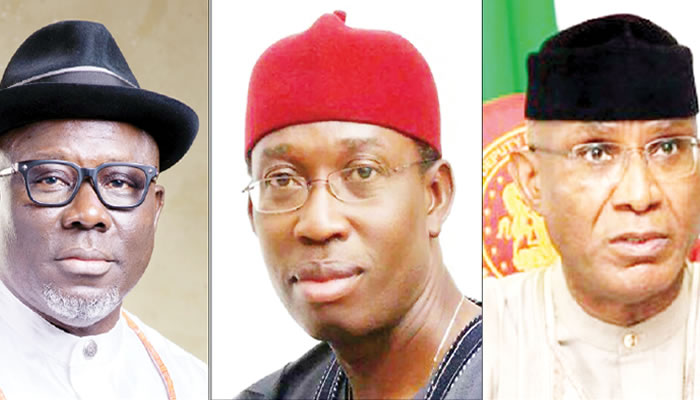The political landscape of Delta State has undergone a dramatic transformation with the mass defection of the entire Peoples Democratic Party (PDP) membership, including Governor Sheriff Oborevwori and his predecessor, Ifeanyi Okowa, to the ruling All Progressives Congress (APC). This unprecedented move has sent shockwaves throughout the state, leaving citizens bewildered and questioning the motivations behind such a significant shift in political allegiance. The defection has sparked widespread speculation and debate about the implications for the state’s political future, particularly in the lead-up to the 2027 general elections. Many are concerned about the potential for a one-party system and the impact on democratic processes.
The defection raises several critical questions. What are Oborevwori and Okowa seeking within the APC? How will this realignment affect the political ambitions of other prominent figures like Ovie Omo-Agege, Ned Nwoko, and James Ibori, who have all been vying for influence within the state’s political arena? The move to the APC seems particularly perplexing given the public criticisms leveled against the party by these same PDP leaders in the past. This apparent shift in ideology underscores the fluidity of political alliances and the prioritization of personal interests over party loyalty in Nigeria’s political landscape.
The dynamics within the APC are likely to become increasingly complex with the influx of these high-profile PDP members. Internal power struggles and competition for political positions are inevitable. The previous rivalry between Ibori, Okowa, Omo-Agege, and Nwoko within the PDP is expected to continue within the APC, potentially creating further internal divisions. The challenge for the APC will be to effectively manage these internal dynamics and ensure a semblance of unity to maintain its political dominance in the state.
The defection process appears to have been strategically orchestrated, commencing with a series of high-level meetings at the Government House in Asaba. These meetings culminated in a unanimous decision by party stakeholders to join the APC. Senator James Manager, a prominent figure in the PDP, justified the move by stating they could no longer remain in a “sinking boat,” suggesting a perceived decline in the PDP’s viability. Commissioner Charles Aniagwu further emphasized the collective nature of the decision, highlighting the involvement of key PDP figures.
While some APC members, like Professor Leroy Edozien, have welcomed the defection, viewing it as a significant gain for the party, others have expressed concern about its potential consequences. Macdonald Ejiro, an opinion leader in the state, has characterized the move as anti-democratic, arguing that it undermines the principles of a multi-party system and could lead to a concentration of power in the hands of a few. This concern reflects a broader anxiety about the potential erosion of democratic processes and the marginalization of alternative political voices.
The resignation of Victor Ojei, Governor Oborevwori’s Special Assistant, in protest against the defection highlights the ethical dilemmas posed by this political maneuver. Ojei’s resignation letter articulates a principled stance against what he perceives as a betrayal of the people’s trust and a dangerous trend toward a one-party system. His act of defiance serves as a reminder of the importance of dissent and the need to hold political leaders accountable for their actions. The overarching concern is whether this mass defection truly reflects the will of the people or is primarily a calculated move by political elites to consolidate their power. The long-term consequences for Delta State’s political landscape remain to be seen.


